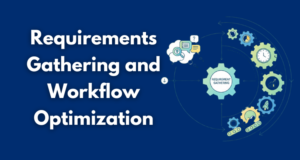Thinking about hiring an offshore development team? Trust is the foundation of a successful partnership, yet it can be difficult to establish when working across different time zones and cultures.
To build long-term collaboration, companies must focus on structured communication, performance accountability, and a shared sense of ownership.
A well-integrated offshore development team can become a valuable extension of your in-house staff, driving efficiency and innovation. Here’s how to achieve that.
Table of Contents
ToggleEstablish Transparent Metrics for Success
Trust isn’t just about good intentions—it’s about measurable outcomes. Define key performance indicators (KPIs) tied to code quality, delivery speed, and issue resolution rates. Go beyond simple deadlines; evaluate offshore developers based on peer code reviews, test coverage, and long-term maintainability of their work.
To ensure alignment, integrate automated tracking within your development process. Tools like SonarQube for code quality, Prometheus for performance monitoring, and Git analytics platforms provide real-time insights into contributions and productivity.
Additionally, a structured review process should be established where senior developers, both onshore and offshore, participate in evaluating code efficiency, security practices, and architectural decisions.

Transparency in performance tracking should go both ways. Encourage developers to share feedback on workflows, tool limitations, and communication bottlenecks. This fosters a culture of continuous improvement, where trust is built on mutual accountability.
Implement Asynchronous-First Communication
Given time zone differences, forcing real-time meetings can be counterproductive. Instead, adopt an asynchronous-first approach with well-structured updates. Encourage detailed documentation in pull requests, use Loom for video walkthroughs, and maintain a centralized knowledge repository to ensure continuity even if team members work at different hours.
Rather than relying on frequent check-ins, use structured status updates with clear blockers, dependencies, and next steps. This reduces micromanagement while ensuring accountability. To further improve communication, establish a standardized format for updates, such as daily summaries in a Slack channel or a shared project dashboard with tagged priorities.
For critical discussions, combine asynchronous updates with occasional real-time deep-dive sessions. This hybrid approach balances flexibility with the need for direct engagement when necessary.
Align Incentives for Long-Term Commitment
One of the biggest risks in offshore development is high turnover. Preventing this requires more than fair pay—it demands alignment with the developers’ career growth. Provide long-term engagement opportunities, such as ownership over specific modules, leadership roles within offshore teams, and pathways to transition into core company functions.
When hiring an offshore development team, companies should focus on long-term engagement rather than short-term staffing. Offer performance-based incentives tied to innovation, efficiency improvements, or contributions beyond coding, such as mentorship and process optimization. This ensures that offshore developers see your company as a long-term professional home rather than a temporary contract.
Beyond financial incentives, invest in professional development. Provide opportunities for offshore developers to attend conferences, earn certifications, and receive mentorship from senior engineers. When developers see that their growth is valued, they become more engaged and invested in delivering high-quality work.
Create a Unified Development Culture

Technical skills alone don’t determine success—alignment with company culture does. Instead of treating offshore teams as separate entities, integrate them into your engineering culture. Use shared coding principles, establish internal developer communities, and conduct cross-team hackathons.
Encourage offshore developers to participate in architectural discussions and planning sessions. Involvement in decision-making fosters a sense of ownership and accountability, making them more invested in the project’s success.
To strengthen relationships, organize virtual team-building activities, such as coding challenges, knowledge-sharing webinars, or even casual “coffee chat” sessions where team members can bond beyond work-related discussions. When offshore developers feel connected to the company’s mission and team dynamics, trust naturally follows.
Handle Conflicts with Data, Not Emotions
Disagreements are inevitable, but they should be resolved based on facts, not assumptions. When evaluating performance issues, rely on data—whether it’s code review feedback, test failure rates, or cycle times. This approach removes biases and allows constructive discussions that focus on improvement rather than blame.
Ensure that offshore developers have an equal voice in raising concerns. Establish a structured issue resolution framework that promotes transparency and prevents misunderstandings. If conflicts arise due to cultural differences in communication styles, provide guidance on constructive feedback and conflict resolution techniques that accommodate diverse perspectives.
Additionally, create a feedback loop where offshore teams can propose process improvements without fear of pushback. Trust grows when developers feel heard and empowered to contribute beyond their assigned tasks.
Strengthen Security and Compliance Practices
Offshore teams often handle sensitive data, making security and compliance critical. To build trust, establish clear security protocols from the start. Use secure development environments, implement role-based access controls, and ensure that all offshore developers are trained in compliance requirements relevant to your industry.
Regular security audits and automated compliance checks help maintain accountability. Additionally, enforce a zero-trust security model where access to systems and repositories is granted based on necessity rather than blanket permissions.
When offshore developers see that security is a shared responsibility rather than a rigid enforcement mechanism, they are more likely to follow best practices proactively. Trust is reinforced when developers feel confident that they are working within a secure and well-structured environment.
Build Long-Term Relationships Through In-Person Interaction

While remote work is effective, face-to-face interactions remain invaluable for deepening trust. If possible, organize periodic in-person meetups, either by bringing offshore teams to your headquarters or visiting their location. These interactions strengthen personal relationships and provide opportunities for strategic discussions beyond daily execution.
Even if physical meetups are rare, use high-quality video calls for important discussions rather than relying solely on text-based communication. Seeing facial expressions and body language helps build stronger personal connections, which are essential for long-term collaboration. To make these meetings more efficient, consider using an AI meeting note taker to automatically capture key points, action items, and decisions without manual effort.
Continuously Improve Collaboration Processes
Trust isn’t static; it requires ongoing effort. Regularly assess the effectiveness of your collaboration processes and be willing to refine them. Conduct retrospectives with your offshore development team to identify bottlenecks, communication gaps, or inefficiencies.
Introduce iterative improvements based on team feedback, whether it’s optimizing sprint planning, adjusting meeting frequencies, or refining documentation practices. A commitment to continuous improvement signals that you value your offshore team’s input and are invested in their success.
From ‘Remote’ Teams to Trusted Partners
Trust with offshore developers isn’t built through surface-level gestures—it requires structured processes, clear incentives, and deep integration into the company’s culture.
By focusing on performance metrics, asynchronous collaboration, long-term career alignment, security best practices, and data-driven conflict resolution, you create an environment where offshore teams thrive and contribute meaningfully to your business success.
Investing in these foundations transforms offshore development from a cost-saving measure into a strategic advantage for innovation and growth.









